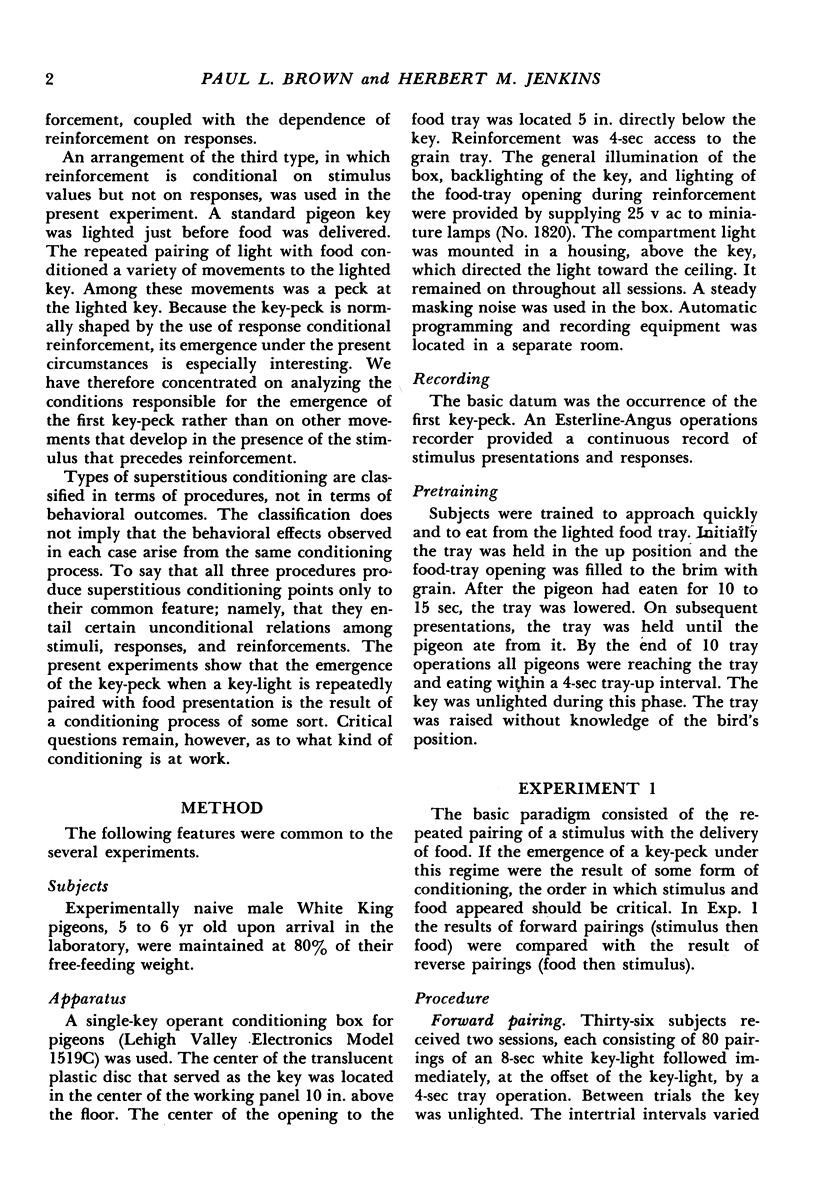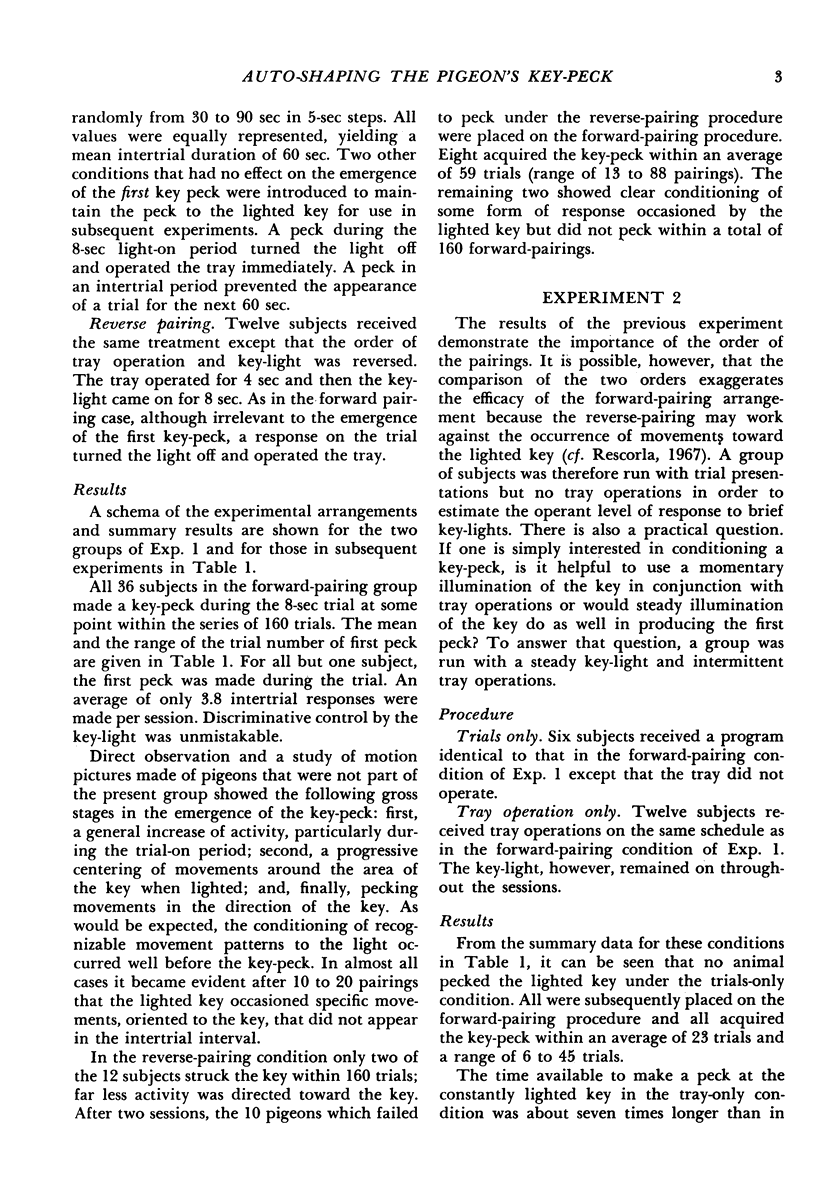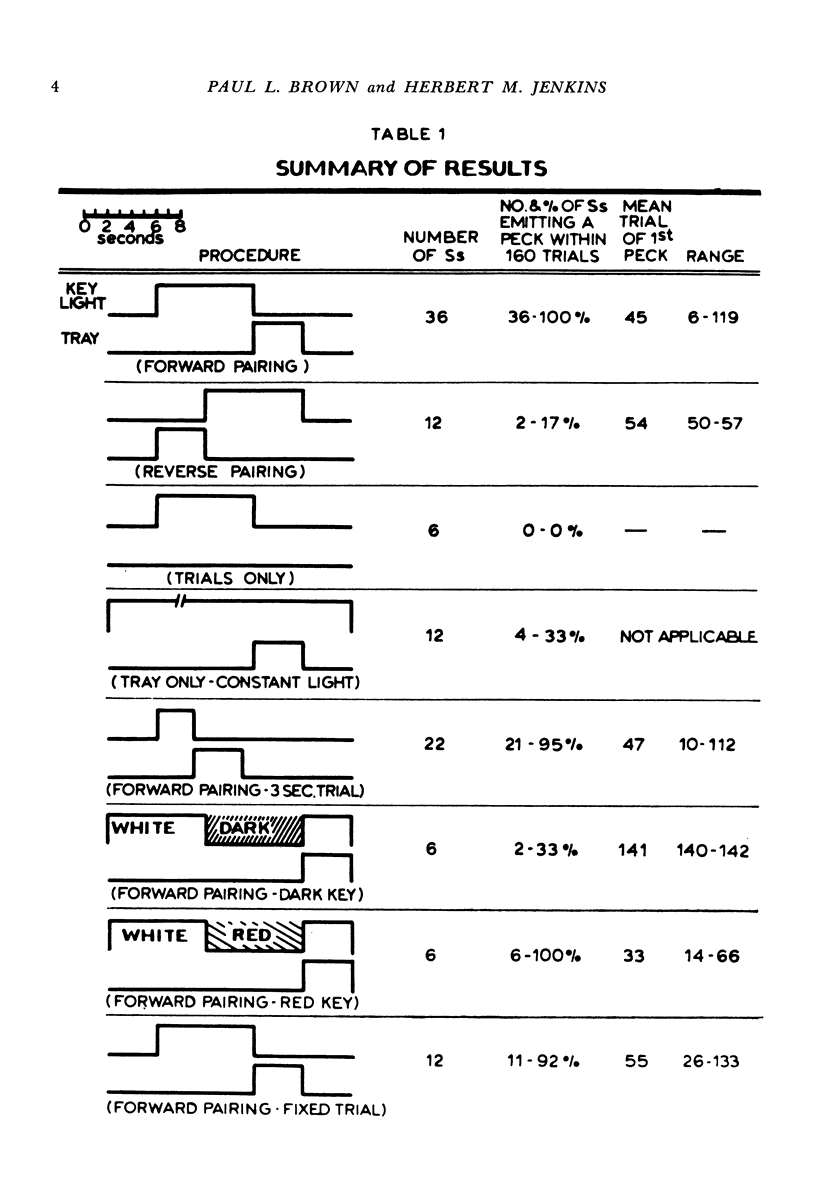Abstract
Reliable acquisition of the pigeon's key-peck response resulted from repeated unconditional (response-independent) presentations of food after the response key was illuminated momentarily. Comparison groups showed that acquisition was dependent upon light—food pairings, in that order.
Full text
PDF







Selected References
These references are in PubMed. This may not be the complete list of references from this article.
- BOWER G., GRUSEC T. EFFECT OF PRIOR PAVLOVIAN DISCRIMINATION TRAINING UPON LEARNING AN OPERANT DISCRIMINATION. J Exp Anal Behav. 1964 Nov;7:401–404. doi: 10.1901/jeab.1964.7-401. [DOI] [PMC free article] [PubMed] [Google Scholar]
- BOWER G., KAUFMAN R. Transfer across drives of the discriminative effect of a Pavlovian conditioned stimulus. J Exp Anal Behav. 1963 Jul;6:445–448. doi: 10.1901/jeab.1963.6-445. [DOI] [PMC free article] [PubMed] [Google Scholar]
- MORSE W. H., SKINNER B. F. A second type of superstition in the pigeon. Am J Psychol. 1957 Jun;70(2):308–311. [PubMed] [Google Scholar]
- MORSE W. H., SKINNER B. F. Some factors involved in the stimulus control of operant behavior. J Exp Anal Behav. 1958 Jan;1:103–107. doi: 10.1901/jeab.1958.1-103. [DOI] [PMC free article] [PubMed] [Google Scholar]
- Rescorla R. A. Pavlovian conditioning and its proper control procedures. Psychol Rev. 1967 Jan;74(1):71–80. doi: 10.1037/h0024109. [DOI] [PubMed] [Google Scholar]
- Trapold M. A., Fairlie J. Transfer of discrimination learning based upon contingent and noncontingent training procedures. Psychol Rep. 1965 Aug;17(1):239–246. doi: 10.2466/pr0.1965.17.1.239. [DOI] [PubMed] [Google Scholar]


